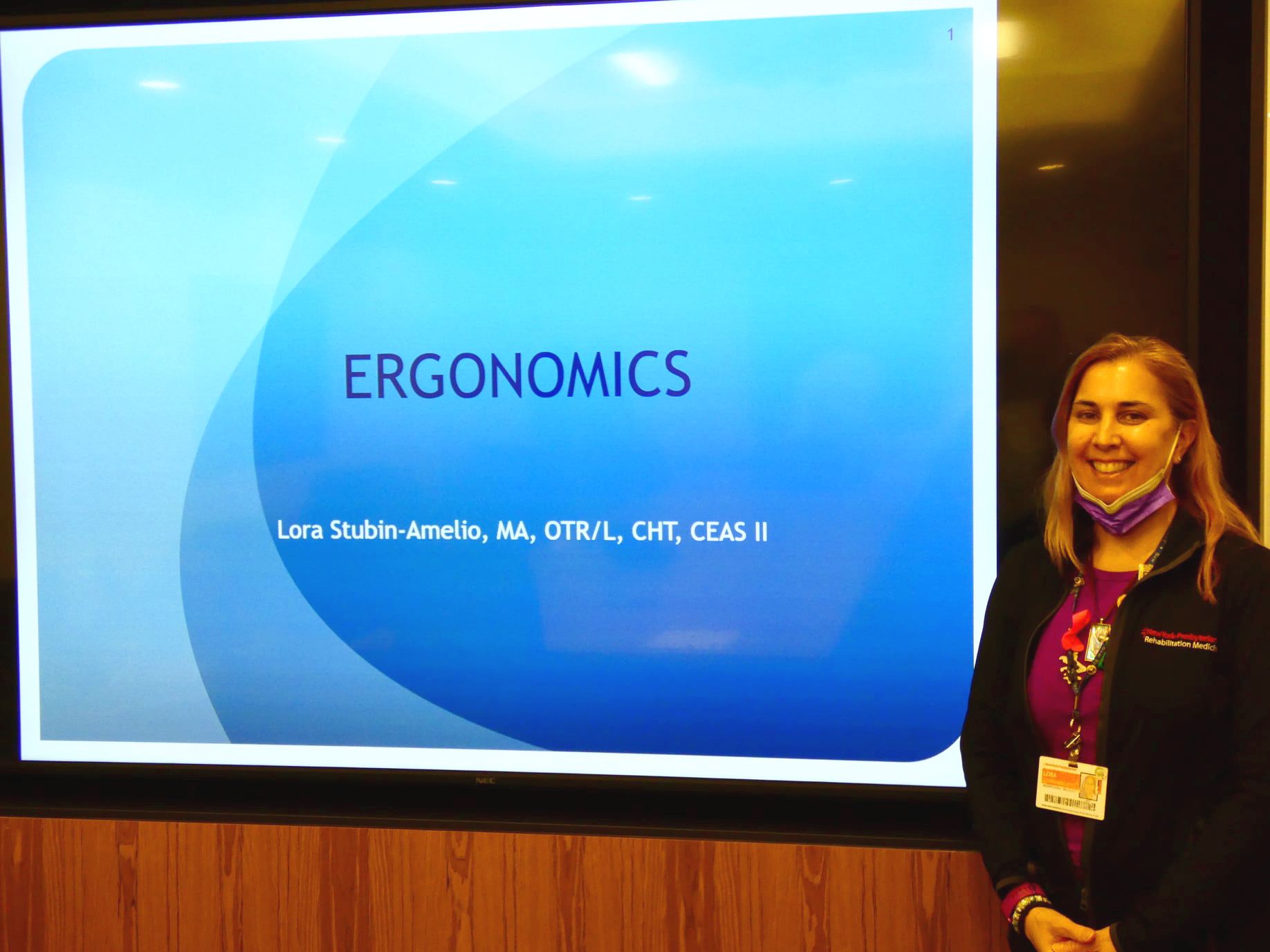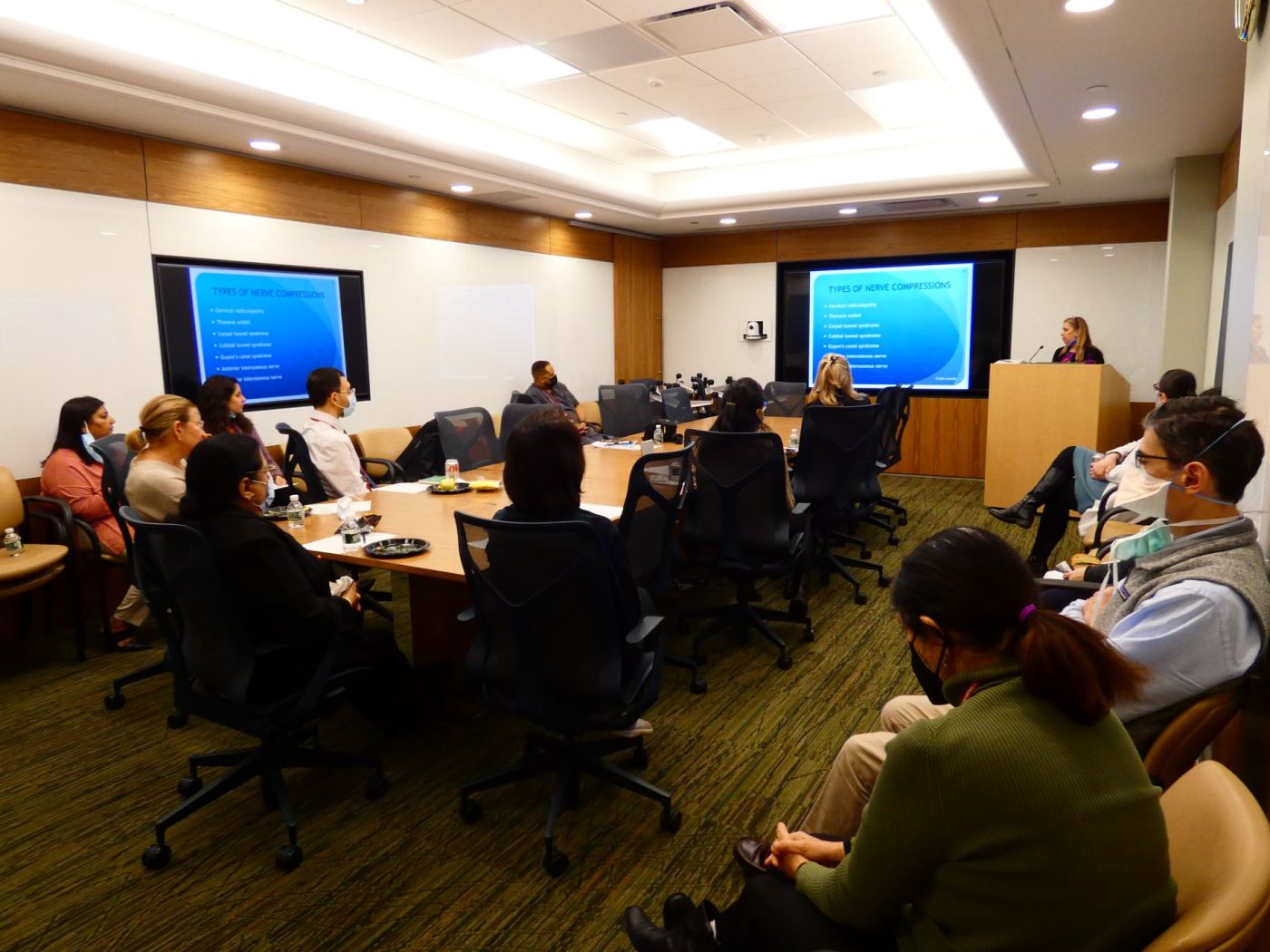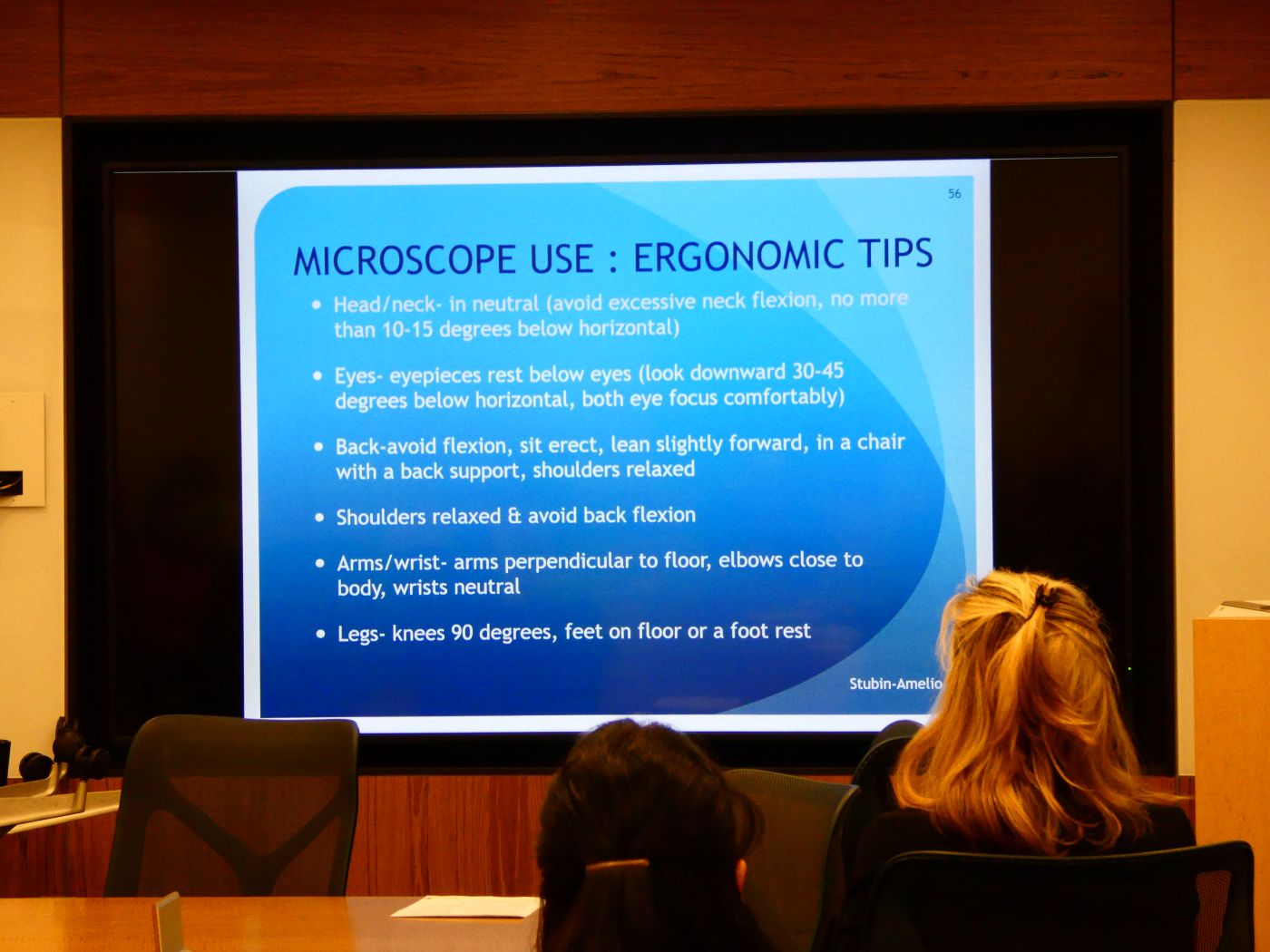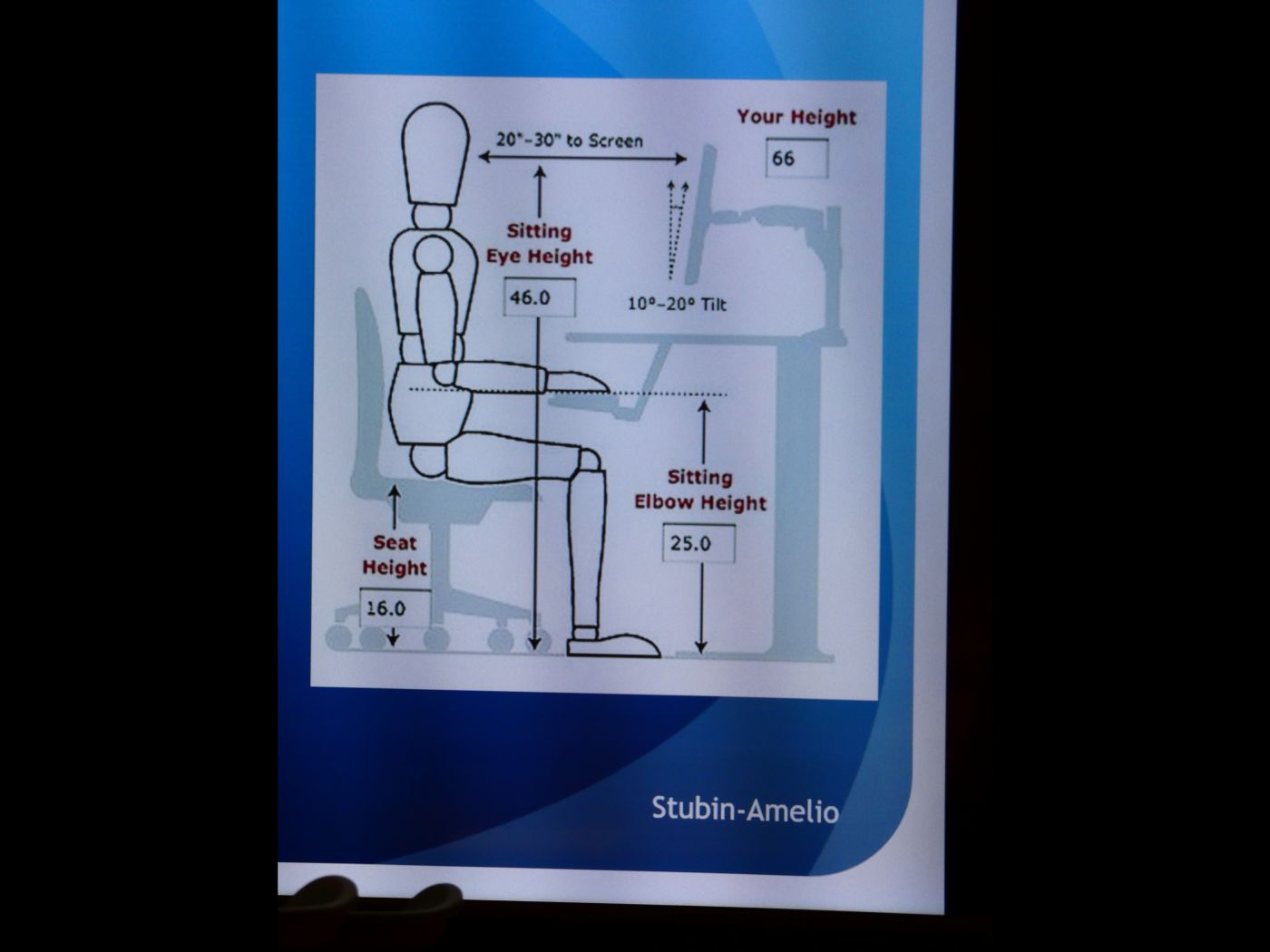For those of us working in academic medicine, the daily strain of our jobs can bring on all sorts of aches and pains. But there are some simple changes we can make to greatly reduce the chance of developing micro-trauma, swelling, pain, and limitations in movement, or more serious conditions like tendinitis, tenosynovitis, and tendinosis.

Lora Stubin-Amelio, M.A.
Senior Occupational Therapist, NewYork-Presbyterian Hospital
Members of the WCM Pathology and Laboratory Medicine department attended a special presentation on March 29th by Senior Occupational Therapist Lora Stubin-Amelio, M.A. from NewYork-Presbyterian who provided ergonomic tips on improving balance, posture and even the use of our microscopes.
“By adjusting the height of our chairs, the angle of our hands when using a computer mouse, and the way we position ourselves when working with microscopes, we can significantly alleviate pain and pressure,” said Ms. Stubin-Amelio.
Some of the specific ergonomic challenges pathologists face, according to Ms. Stubin-Amelio, are awkward working postures while sitting and manipulating a microscope’s complicated controls and adjusting the height and viewing of lenses. Even the way we position other everyday equipment can make a big difference.
“Since many pathologists and staff members use laptops, it’s very important to raise those computers up on books to a position that’s level with your eyesight to prevent both eye and neck strain,” she said. “Others may find it helpful to get a separate keyboard and monitor that allows them to work with their arms at a 90-degree angle. It’s also recommended that we sit up straight, and keep our hips, knees, and ankles all at 90-degrees.
While we cannot avoid all the challenges of a modern workplace--whether that's in the office, the lab, or our home offices--these simple tips can make for a more comfortable and healthful working experience for many.




